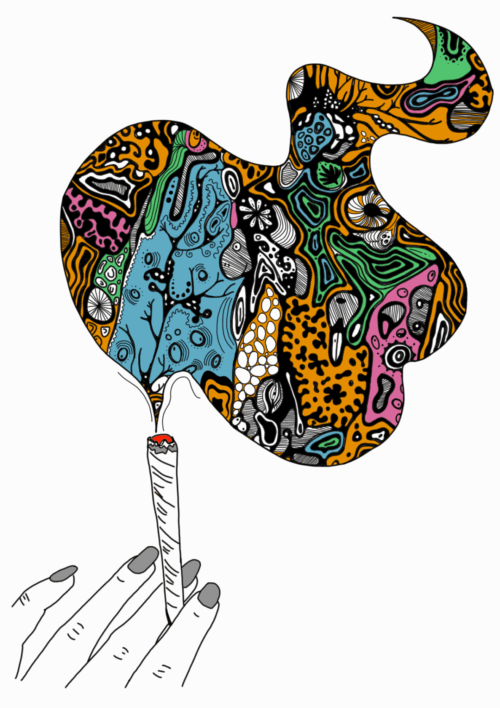Editor’s note: The Independent’s annual Weed Issue arrives amid upheaval on Harvard’s campus. On April 14, University President Alan Garber ’76 declared in a message to the community that Harvard would not comply with the terms set forth by President Donald Trump’s administration. The Trump administration responded by freezing $2.2 billion on multi-year grants as well as $60 million in multi-year contract value. The Independent will continue to report on this developing story and its implications. Visit here to follow our coverage as events unfold.
Dear Readers,
The Harvard Independent is proud to present the third edition of “The Weed Issue.” What began as spirited late-night conversations in our office—centered on challenging campus conventions and expanding the boundaries of student discourse—soon evolved into something more intentional. Recognizing a gap in how these “taboo” topics are addressed, much like our “Sex Issue,” we launched the annual “Weed Issue” to spark honest and necessary conversations around cannabis and the culture that surrounds it.
But as you explore this issue, filled with powerful interviews, personal testimonies, creative writing, and sharp humor, I urge you to recognize something we do not take lightly: the privilege we hold in being able to have these conversations at all.
I draw inspiration for this letter from former Harvard Independent Editor-in-Chief Marbella Marlo ’24, who, in her own Weed Issue letter, powerfully described the political and racial dimensions of cannabis in America. Marlo focused on the American criminal justice system, highlighting its disproportionate impact on marginalized communities, particularly Black and Latino individuals.
Her words, written two years ago, remain relevant today. The legacy of former President Richard Nixon’s 1971 declaration of the “war on drugs” fueled a cycle of mass criminalization, with marijuana offenses serving as a key mechanism of systemic racial injustice.
In the United States, Black people are nearly four times more likely to be arrested for cannabis use than their white counterparts. In 2018, 89% of the more than 2,000 individuals arrested on cannabis-related charges were people of color, despite roughly similar marijuana use rates. Beyond arrest rates, racial disparities exist in sentencing as well: people of color are significantly more likely to receive longer prison terms for the same cannabis-related offenses.
These injustices carry a profound weight, especially as policy proposals and altered social norms move us deeper into an era where marijuana is increasingly decriminalized and legalized. In Massachusetts, adults over the age of 21 can legally purchase and use recreational cannabis. Nationwide, 39 out of 50 states have legalized cannabis for medical use, and 24 have legalized it for recreational use.
As we engage in these conversations, and as members of our publication share both personal experiences and the powerful stories of others, we must also recognize the position from which we speak. We are students at an elite institution, afforded the choice to publish our thoughts in anonymity. This anonymity can offer safety and distance. That protection—the ability to speak without fear of retribution—is itself a form of privilege.
Outside these brick walls, many people do not have this luxury.
The Independent has not overlooked this contradiction. In this issue, we confront this paradox head-on—where “weed culture” seemingly thrives within the Harvard bubble, even as others continue to face carceral realities for the same acts. We explore what this privilege looks like, and what it demands of us, through a range of stories related to drug policy and use.
So as you read our articles—some pieces lighthearted, others more serious—I encourage you to reflect on your assumptions, judgments, and understanding. It’s through this lens that the Independent finds its power, by challenging you to consider how drugs, society, and culture shape the world around you—and how you, in turn, choose to engage with it. These conversations might not be as taboo as we’re led to believe—they’re just often overlooked.
Marlo closed her essay affirming the dual truth surrounding cannabis use and its complicated history and place in our society. “Weed is not just a party trick, and getting high should not allow users to avoid the drug’s social history. It is an activity and product that carries a dark narrative, yet also has created a space for open dialogue and enjoyment,” she wrote.
In a country where some people build empires selling the very thing others face incarceration for, every puff carries a history, and every silence, a choice.
The question isn’t whether we talk about it. The question is: what are you willing to do once you know? How are we shaping the conversation?
And with that, welcome to the 2025 Weed Issue.
Layla Chaaraoui ’26 (laylachaaraoui@college.harvard.edu) is the Editor-in-Chief of the Harvard Independent.

